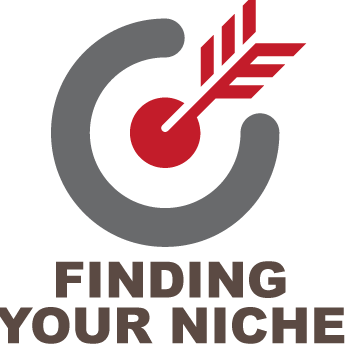
I recently started teaching as adjunct marketing faculty at Cleveland State University. It’s been so much fun instructing and inspiring young minds and it also has allowed me to re-visit all the important marketing fundamentals.
One of the sections we just covered is defining your target audience and niche. Defining your niche is a challenge for most business owners, primarily because their niche is too broad. It has to be very specific so that your potential clients know that you serve them and you are THE expert at solving their unique, specific problems.
Defining your niche is a challenge for most business owners, primarily because their niche is too broad. It has to be very specific so that your potential clients know that you serve them and you are THE expert at solving their unique, specific problems.
Your niche is actually a subset of your market or skill set. For example, a CPA practices accounting, but may have a niche (specializes) in helping small businesses with their taxes. Author and marketing thought-leader Seth Godin (a marketing genius – if you haven’t read his books go out and buy one now!) had this to say about defining your niche in a recent blog posting:
“The secret to being the best in the world is to make the ‘world’ smaller. Alan Scott was the best community-focused artisan pizza oven builder in the world. A niche that didn’t exist before he got there, but one that spread, that engaged people, that created a tribe and that supported him. Alan was passionate about his craft and wasn’t shy about sharing it. He trained others and turned it into a movement.
It’s entirely possible that you will choose a niche that’s too small. It’s much more likely you’ll shoot for something too big and become overwhelmed. When in doubt, overwhelm a small niche.”
In The Long Tail, author Chris Anderson remarks that the internet has given us endless choices, which is creating unlimited demand for niche markets. If you can imagine a product or service, there is probably a group of people out there in the world ready to consume it. Just be cautious that your niche isn’t too small – you want to be in business for years to come.
If you aren’t 100% sure what your specific skill set and talents are (many entrepreneurs struggle with this, so you are not alone!) I recommend checking out some of these books:
- Unique Ability by Catherine Nomura, Julia Waller, and Shannon Waller
- Strengths Finder 2.0 by Tom Rath
- Finding Your Own North Star by Martha Beck
- The Four-Hour Workweek by Timothy Ferris
- Do What You Love and The Money Will Follow by Marsha Sinetaur
In addition to aligning with your unique talents, your niche has to be able to afford the types of products and services you want to offer. A strategy that I often use with clients if they are struggling to define a niche or their signature topic is to browse the top selling books or magazine titles on Amazon.com. In doing so, you’ll have an excellent idea of which topics are most popular, marketable and what people are spending their money on.
